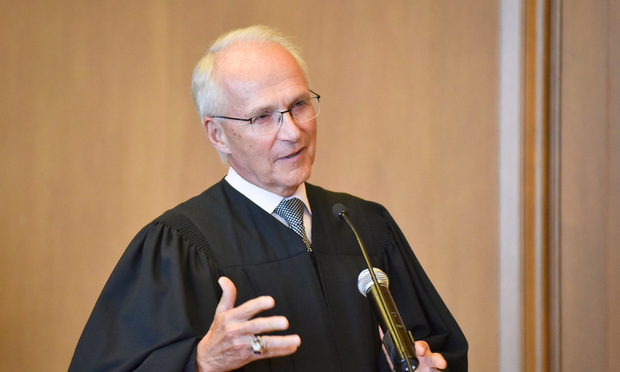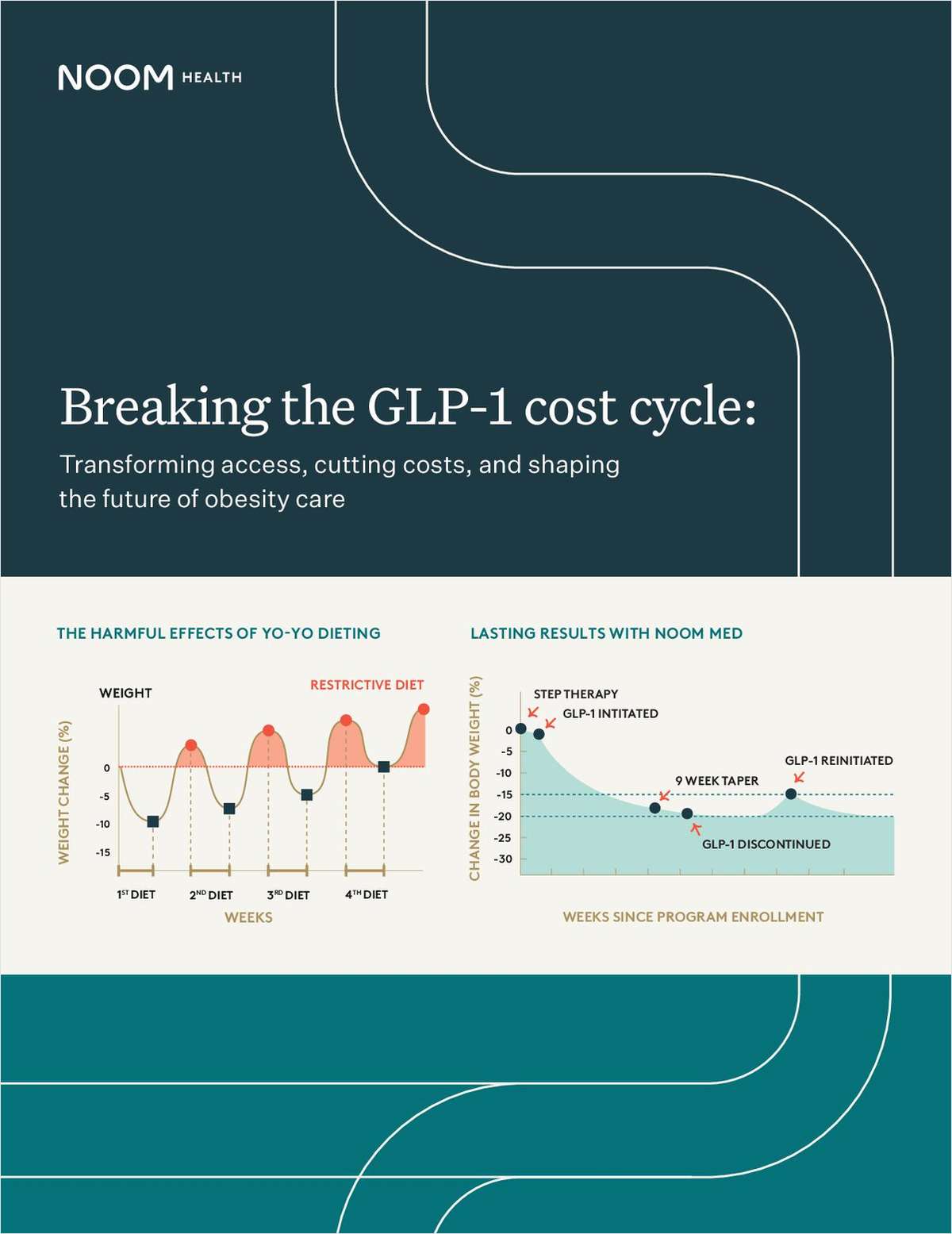New 2nd Circuit Ruling Could Hobble Cigarette Company Defenses in Tobacco Cases
Jurors had returned a defense verdict for Philip Morris USA Inc. after a two-week trial, but that result could now be in jeopardy.
August 22, 2019 at 04:07 PM
4 minute read
 Judge Richard Wesley of the U.S. Court of Appeals for the Second Circuit. Photo: David Handschuh/NYLJ.
Judge Richard Wesley of the U.S. Court of Appeals for the Second Circuit. Photo: David Handschuh/NYLJ.
A federal judge in the District of Connecticut misapplied a legal doctrine that could have changed the outcome of a products liability lawsuit against cigarette giant Philip Morris USA Inc., the U.S. Court of Appeals for the Second Circuit ruled Thursday.
The new decision has the potential to dramatically change the way tobacco cases are litigated, according to David S. Golub of Silver Golub & Teitell in Stamford, who represents the plaintiff.
"The way that tobacco companies defend smoking cases is by denying that they manipulate nicotine, by this argument that, 'Cigarettes have always been addictive. We don't do anything to make them addictive. We didn't try to addict people. We didn't try to strengthen the nicotine.' And they put witnesses on to say that," Golub said. "If they are not allowed to do that, it changes the entire nature of how tobacco cases will be litigated in this country."
Jurors had returned a defense verdict for Philip Morris after a two-week trial, but that result could now be in jeopardy, as the appellate panel found the lower court failed to properly analyze whether a nonmutual offensive collateral estoppel standard should have applied.
The standard blocks defendants from relitigating issues they've already lost elsewhere. In this case, plaintiff Vincent J. Bifolck claimed Philip Morris had already lost the argument about manipulating the composition of nicotine in cigarettes to sustain nicotine addiction in consumers.
The Second Circuit declined to rule on whether applying the standard would be fair to the defendant, leaving that to the lower court to decide. Until then, the defense verdict stands.
Counsel to Philip Morris were Geoffrey Michael, David Kouba and Paul Rodney of Arnold & Porter Kaye Scholer's Washington, D.C., and Denver offices; Francis H. Morrison III of Axinn Veltrop & Harkrider in Hartford, Connecticut; and Frank P. Kelly, Scott D. Kaiser and Ruth Anne French-Hodson of Shook, Hardy & Bacon in San Francisco and Kansas City. They did not respond to requests for comment by deadline.
The dispute started with Bifolck's 2006 products liability lawsuit, which alleged negligent design of the defendant's Marlboro and Marlboro Lights cigarettes had caused his 42-year-old wife's death.
Bifolck pointed to a U.S. Department of Justice civil lawsuit against Philip Morris and other tobacco companies in the District of Columbia under the Racketeer Influenced and Corrupt Organizations Act, or RICO.
After a bench trial in 2006, the court found the defendants violated RICO, and ordered them to make corrective statements to the press about their manipulation of nicotine levels in cigarettes.
Just before the statements were published in November 2017, Bifolck moved to block Philip Morris from challenging them in his case.
But U.S. District Judge Stefan R. Underhill said no, finding that the cases were too different in scope and cause of action to compare. Philip Morris then presented evidence that it didn't manipulate nicotine in Marlboros, and jurors returned a defense verdict.
That wasn't a harmless error, Thursday's opinion said, because jurors were told they could find the cigarettes unreasonably dangerous if they found them to be unnecessarily addictive.
"At trial and during jury deliberations, Bifolck could have benefited from a stipulation of this fact," the opinion said. "Had he built his case with a baseline finding that Philip Morris could (and at times did) manipulate nicotine levels, Bifolck's whole strategy at trial could have been different."
Circuit Judge Richard C. Wesley wrote the opinion, with Judges Guido Calabresi and Jose Cabranes concurring.
Read the court opinion:
Read more:
As Officials Scrutinize Vaping Industry, Lawyers See Big—But Risky—Business
As Jury Deliberated, Connecticut Lawyers Reached $20M Settlement in Wrongful Death Case
This content has been archived. It is available through our partners, LexisNexis® and Bloomberg Law.
To view this content, please continue to their sites.
Not a Lexis Subscriber?
Subscribe Now
Not a Bloomberg Law Subscriber?
Subscribe Now
NOT FOR REPRINT
© 2025 ALM Global, LLC, All Rights Reserved. Request academic re-use from www.copyright.com. All other uses, submit a request to [email protected]. For more information visit Asset & Logo Licensing.
You Might Like
View All



Federal Judge Approves Harvard's Dismissal of Chip-Patent Suit Against Samsung
2 minute readTrending Stories
- 1Commentary: Tort Reform Is a Misleading Promise
- 2The Lawyers Waging the Legal Fight Against the Trump Administration
- 3McDermott's Onetime London Leader Headed to Pillsbury
- 4A&O Shearman To Lose Another Five Lawyers to EY
- 5Pearl Cohen Enters San Francisco Market Via Combination With IP Boutique
Who Got The Work
J. Brugh Lower of Gibbons has entered an appearance for industrial equipment supplier Devco Corporation in a pending trademark infringement lawsuit. The suit, accusing the defendant of selling knock-off Graco products, was filed Dec. 18 in New Jersey District Court by Rivkin Radler on behalf of Graco Inc. and Graco Minnesota. The case, assigned to U.S. District Judge Zahid N. Quraishi, is 3:24-cv-11294, Graco Inc. et al v. Devco Corporation.
Who Got The Work
Rebecca Maller-Stein and Kent A. Yalowitz of Arnold & Porter Kaye Scholer have entered their appearances for Hanaco Venture Capital and its executives, Lior Prosor and David Frankel, in a pending securities lawsuit. The action, filed on Dec. 24 in New York Southern District Court by Zell, Aron & Co. on behalf of Goldeneye Advisors, accuses the defendants of negligently and fraudulently managing the plaintiff's $1 million investment. The case, assigned to U.S. District Judge Vernon S. Broderick, is 1:24-cv-09918, Goldeneye Advisors, LLC v. Hanaco Venture Capital, Ltd. et al.
Who Got The Work
Attorneys from A&O Shearman has stepped in as defense counsel for Toronto-Dominion Bank and other defendants in a pending securities class action. The suit, filed Dec. 11 in New York Southern District Court by Bleichmar Fonti & Auld, accuses the defendants of concealing the bank's 'pervasive' deficiencies in regards to its compliance with the Bank Secrecy Act and the quality of its anti-money laundering controls. The case, assigned to U.S. District Judge Arun Subramanian, is 1:24-cv-09445, Gonzalez v. The Toronto-Dominion Bank et al.
Who Got The Work
Crown Castle International, a Pennsylvania company providing shared communications infrastructure, has turned to Luke D. Wolf of Gordon Rees Scully Mansukhani to fend off a pending breach-of-contract lawsuit. The court action, filed Nov. 25 in Michigan Eastern District Court by Hooper Hathaway PC on behalf of The Town Residences LLC, accuses Crown Castle of failing to transfer approximately $30,000 in utility payments from T-Mobile in breach of a roof-top lease and assignment agreement. The case, assigned to U.S. District Judge Susan K. Declercq, is 2:24-cv-13131, The Town Residences LLC v. T-Mobile US, Inc. et al.
Who Got The Work
Wilfred P. Coronato and Daniel M. Schwartz of McCarter & English have stepped in as defense counsel to Electrolux Home Products Inc. in a pending product liability lawsuit. The court action, filed Nov. 26 in New York Eastern District Court by Poulos Lopiccolo PC and Nagel Rice LLP on behalf of David Stern, alleges that the defendant's refrigerators’ drawers and shelving repeatedly break and fall apart within months after purchase. The case, assigned to U.S. District Judge Joan M. Azrack, is 2:24-cv-08204, Stern v. Electrolux Home Products, Inc.
Featured Firms
Law Offices of Gary Martin Hays & Associates, P.C.
(470) 294-1674
Law Offices of Mark E. Salomone
(857) 444-6468
Smith & Hassler
(713) 739-1250










